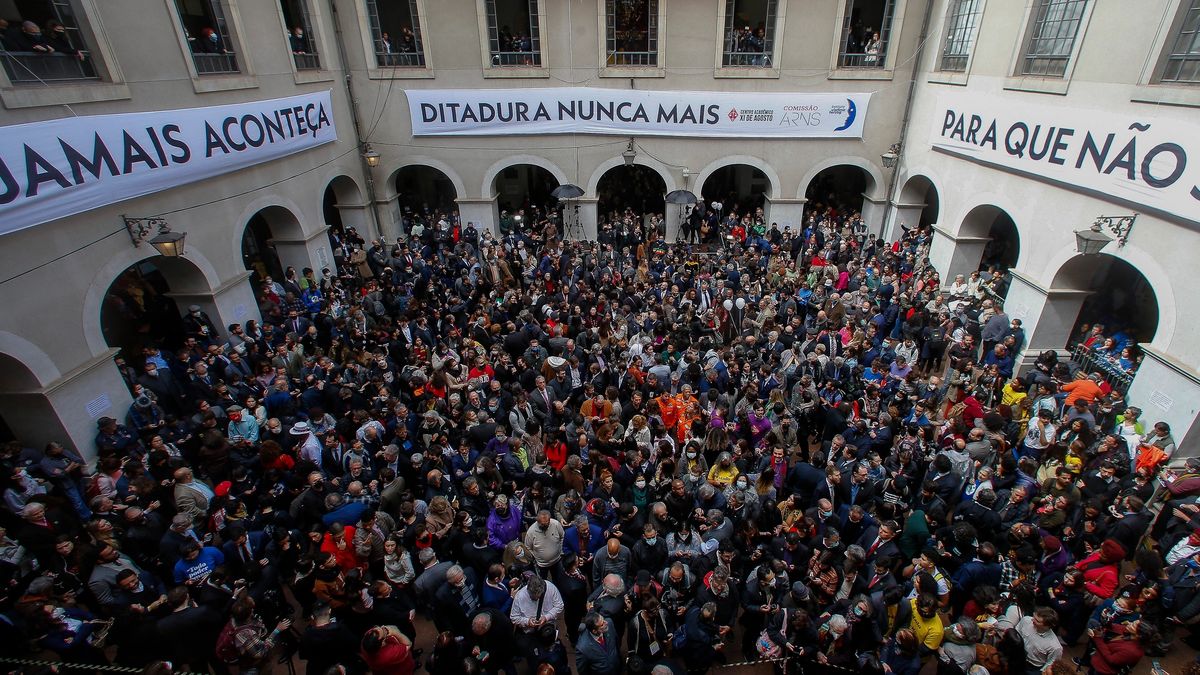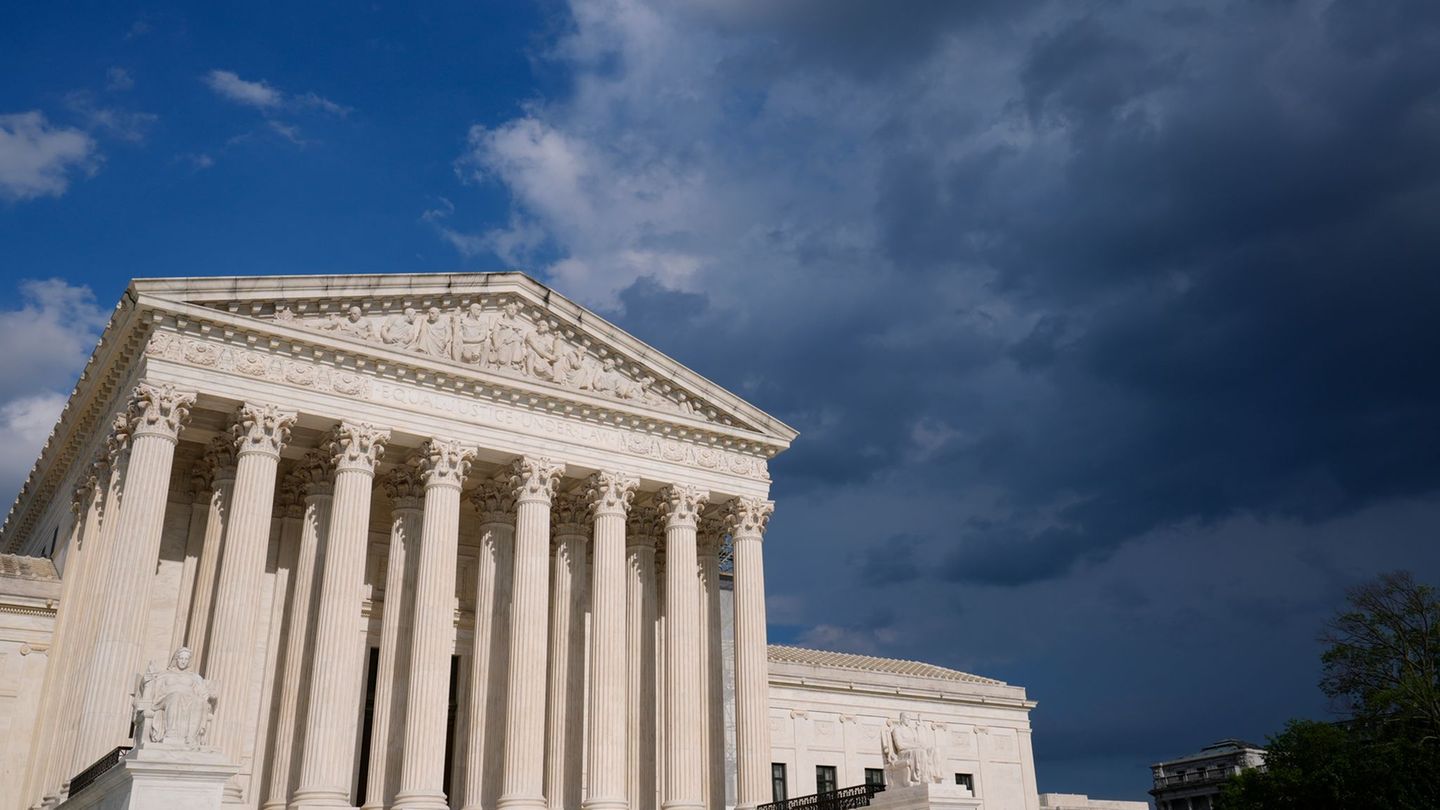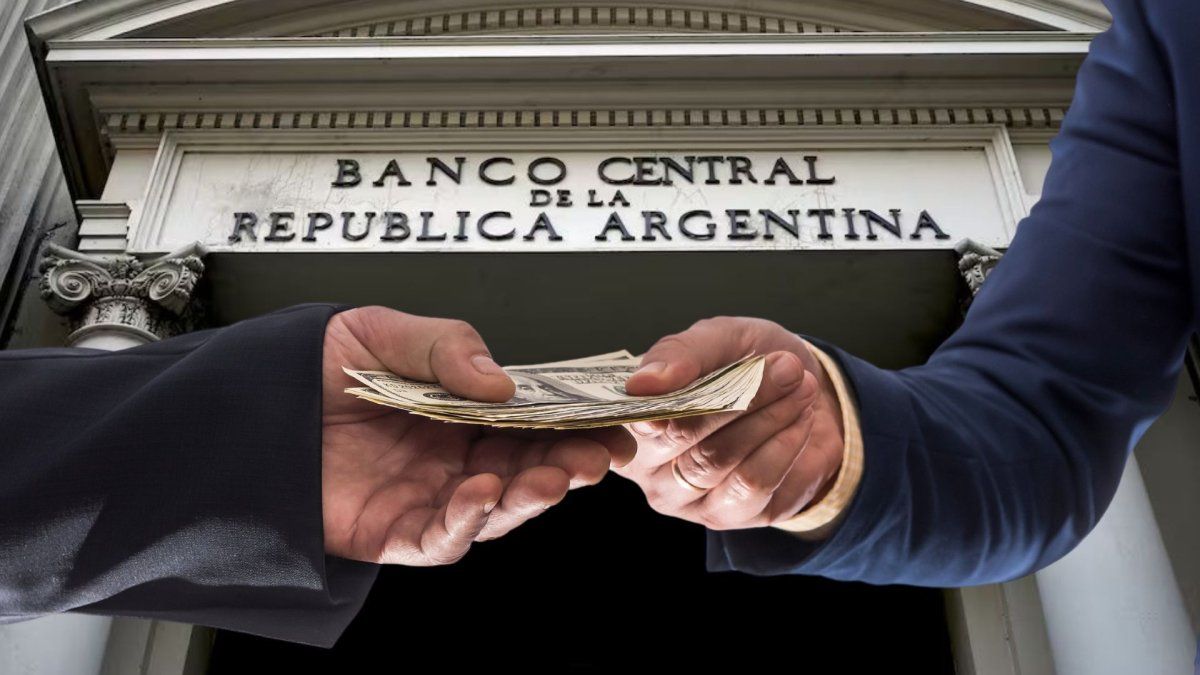In his race with a view to re-election, the ultra-conservative again publicly criticized the judges of the Supreme Federal Court (STF) and to question the reliability of the electronic voting in force in Brazil, fueling fears that it might not concede eventual defeat.
“After 200 years of independence in Brazil, we should be thinking about our future, about how to solve serious problems related to education, health, the economy… but we are dedicated to preventing setbacks,” said the rector of the University of São Paulo (USP) Carlos Gilberto Carlotti Juniorwhen inaugurating an act in said institution that brought together some 800 jurists, professors, businessmen, union leaders and NGOs.
Outside the university, several thousand people waved flags and raised banners against Jair Bolsonaro or with slogans like “Respect the vote, respect the people“. Some disguised themselves as an electronic ballot box.
Throughout Thursday, other demonstrations were planned in various cities of the country, such as Rio de Janeiro Y brasiliawhich registered events at the Pontifical Catholic University (PUC-Rio) and at the University of Brasilia (UnB).
Massive support for the manifesto for democracy
More than 900,000 representatives of the civil society in recent weeks signed a manifesto “in defense of democracy” launched by USP, which was read in a video by artists such as the singers Caetano Veloso, Anitta and the actress Fernanda Montenegro.
Similar letters were published by major business associations, including the Brazilian Federation of Banks (Febraban) and the highly influential Federation of Industries of São Paulo (Fiesp)something seen by many observers as a setback for Jair Bolsonaro, since most of the business community supported him in the 2018 election.
Brazil is experiencing an “unprecedented moment, in which capital and labor come together in defense of democracy,” said the former Minister of Justice Jose Carlos Dias reading the manifesto issued last week by Fiesp.
Brazil act for democracy 1.jpg
Photo: A Tribune
The memory of the military dictatorship
The participants of the event at the University of São Paulo drew parallels with an event held in 1977, in the midst of the dictatorship, when a manifesto in defense of democracy was read at that same university, in whose drafting Dias also participated.
“Our president has already given indications that he will do everything possible to prevent elections from taking place,” architect Sabrina Cunha, 62, told AFP. “I was part of the student movement during the military dictatorship (1964-1985), I know what awaits us,” he added.
Jair Bolsonaro disparaged these demonstrations this week by assuring that “who wants to be democratic” does not need to sign a “letter“.
The president frequently repeats, without providing evidence, that the Brazilian electoral system is not reliable and raises suspicions about the results of 2014 and 2018.
Last month he reproduced these ideas before an audience of foreign ambassadors in Brasilia. USA he reacted by praising the Brazilian elections as a “model for the whole world”. YouTube ended up removing the video for violating the platform’s “electoral integrity policy.”
In the last survey of the Institute Datafolhapublished on July 28, Jair Bolsonaro is 18 points behind the leftist former president Lula da Silva (2003-2010), favorite to win the election (47% against 29%).
Source: Ambito
David William is a talented author who has made a name for himself in the world of writing. He is a professional author who writes on a wide range of topics, from general interest to opinion news. David is currently working as a writer at 24 hours worlds where he brings his unique perspective and in-depth research to his articles, making them both informative and engaging.




